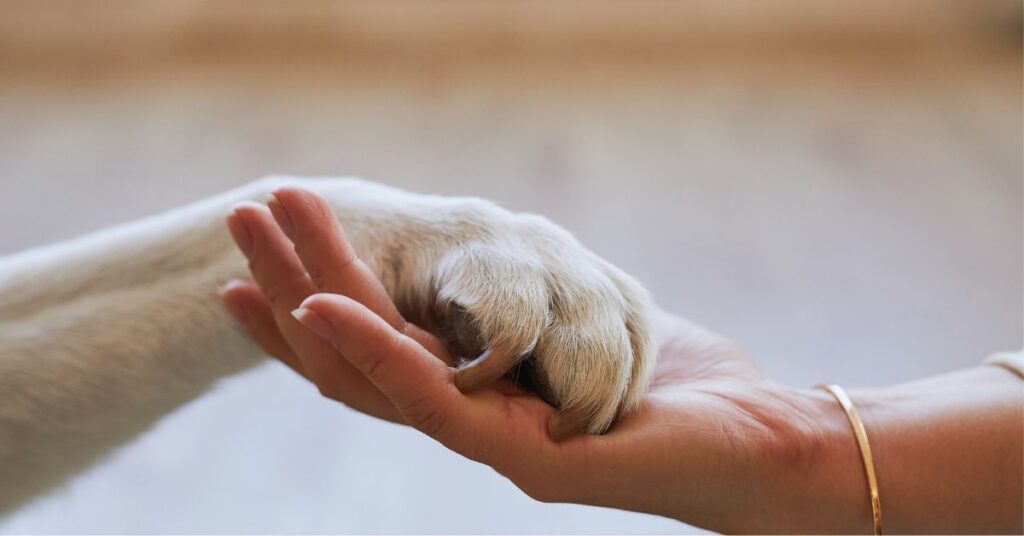Table of Contents
ToggleIntroduction
Losing a pet is a deeply emotional experience—one that can feel as intense and life-altering as losing a family member. For many people, pets are much more than animals—they’re confidants, companions, and constant sources of comfort and love. They provide joy, routine, and unconditional support, becoming intertwined with daily life in ways that only pet lovers fully understand. So when that bond is broken by loss, it can be devastating.
When someone you care about is grieving this kind of loss, knowing what to say when someone loses a pet can be challenging. You want to be supportive without sounding impersonal or clichéd, offering solace in a way that acknowledges their pain and honors the memory of their beloved pet.
Here are meaningful and heartfelt ways to provide comfort, compassion, and presence during a time of pet loss.
Why Pet Loss Hurts So Deeply
The bond between humans and their pets is often unconditional and emotionally pure. These loyal companions don’t just fill our homes—they fill our hearts. Pets become part of our daily routines, offering a sense of stability, comfort, and affection that is unwavering. They witness our private lives, celebrate our joys, and quietly sit with us through our lowest moments. That’s why losing a pet can trigger profound grief—it disrupts a daily rhythm, brings emotional pain, and even a sense of identity loss. The empty bed, the missing leash, the silence where playful noise once lived—all serve as constant reminders of their absence.
Understanding this unique grief is the first step toward offering sincere support.
Things to Say to Comfort Someone Whose Pet Just Passed Away
Knowing what to say doesn’t mean having the perfect words—it means being genuine. Here are some compassionate phrases to use:
- “I’m so sorry for your loss. I know how much [Pet’s Name] meant to you.”
- “[Pet’s Name] was lucky to have had you—and you them.”
- “Your bond with [Pet’s Name] was so special. They’ll always be remembered.”
- “Please know I’m here for you. It’s okay to feel heartbroken.”
- “Take all the time you need to grieve. Losing a pet is losing a piece of your heart.”
Each message recognizes the emotional depth of pet companionship and validates the grieving process. Offering this kind of support helps your friend or loved one feel seen and understood during an incredibly vulnerable time. It reminds them that their emotions are valid and that they don’t have to grieve alone.
What to Avoid Saying
In an attempt to help, people sometimes say things that can unintentionally minimize the pain. It’s important to remember that the grief of losing a pet is real and personal. Casual remarks—even those meant to comfort—can unintentionally come across as dismissive or lacking empathy. Avoid phrases like:
- “You can always get another pet.”
- “At least it wasn’t a person.”
- “It was just a dog/cat.”
- “Everything happens for a reason.”
Such statements, though often well-intentioned, can invalidate the depth of someone’s grief and make them feel misunderstood or isolated. When someone is mourning a beloved pet, what they need most is not a solution but acknowledgment of their pain.
Instead of rushing to fill the silence with words, offer your presence. Listen actively, allow space for tears, and be available in whatever way they need. Sometimes, the most comforting thing you can do is simply sit with them in their sorrow, letting them know they’re not alone. Empathy often requires silence and presence..
Thoughtful Gestures Beyond Words
Sometimes words aren’t enough, and a simple gesture can speak volumes—especially during a time of emotional vulnerability. When someone is grieving a pet, small acts of kindness can become cherished expressions of empathy and love.
- Send a sympathy card with a personal note that reflects their pet’s personality or your favorite memory of them. A sincere message goes beyond generic sympathy—it honors their unique bond.
- Gift a framed photo or paw print keepsake as a lasting memento. Personalized gifts help keep the memory of the pet alive in a beautiful, tactile way.
- Offer help with daily tasks during their grieving period. Grief can be draining, and assistance with errands, cooking, or simply spending quiet time together can provide immense relief.
- Donate to an animal shelter in the pet’s name. This is a thoughtful way to celebrate their pet’s life by helping others in need.
These small but meaningful actions can provide comfort and show your support in a tangible way. They communicate care, understanding, and remembrance—sometimes more powerfully than words ever could.
Frequently Asked Questions
Q: What do I write in a sympathy card for pet loss?
Share a heartfelt memory of the pet or express how special their bond was. Keep it sincere and personalized. Even a short, kind note can mean the world.
Q: Is it okay to check in later?
Absolutely. Grief doesn’t follow a timeline. A message weeks or even months later shows that you still care and haven’t forgotten their loss.
Q: Should I talk about their pet or avoid the topic?
Let them lead. If they bring up their pet, be open to listening. Sharing stories and memories can be a meaningful part of healing.
Q: How do I support someone who isn’t ready to talk about it?
Respect their space while still showing you care. A simple text, thoughtful gesture, or check-in can let them know you’re there without pressuring them to open up.
Q: Is it appropriate to give a gift after someone’s pet passes away?
Yes. Thoughtful gifts like custom keepsakes, donation in the pet’s name, or even a calming care package can provide comfort and show empathy.






